This magisterial album, the saxophonist’s four-part sonic prayer dedicated to the divine creator, encapsulates the deep searching quality of John Coltrane’s music as his career neared its peak. The music is often intense, febrile and probing, but, paradoxically, it’s also blissfully serene in places. Trane is accompanied by his classic quartet, comprising pianist McCoy Tyner, bassist Jimmy Garrison and drummer Elvin Jones. As well as being arguably Coltrane’s best ever album, A Love Supreme is also one of the greatest albums in jazz – and, significantly, it spawned the spiritual jazz movement. Though it’s not as accessible as Trane’s Prestige work, A Love Supreme possesses a hypnotic quality that can seduce even the most jazz-phobic of listeners and send them on a path to buy John Coltrane music.
(www.udiscovermusic.com)
Two important things happened to Coltrane in 1957: The saxophonist left
Miles Davis' employ to join Thelonious Monk's band and hit new heights
in extended, ecstatic soloing. Coltrane also kicked heroin addiction,
a vital step in a religious awakening that climaxed with this legendary
album-long hymn of praise. The indelible four-note theme of the first
movement, "Acknowledgment," is the humble foundation of the
suite. But Coltrane´s majestic, often violent blowing (famously
described as "sheets of sound") is never self-aggrandizing.
Aloft with his classic quartet (pianist McCoy Tyner, bassist Jimmy Garrison,
drummer Elvin Jones), Coltrane soars with nothing but gratitude and joy.
You can't help but go with him.
(Rolling Stone)
Easily one of the most important records ever made, John Coltrane's A
Love Supreme was his pinnacle studio outing that at once compiled all
of his innovations from his past, spoke of his current deep spirituality,
and also gave a glimpse into the next two and a half years (sadly, those
would be his last). Recorded at the end of 1964, Trane's classic quartet
of Elvin Jones, McCoy Tyner, and Jimmy Garrison stepped into the studio
and created one of the most thought-provoking, concise, and technically
pleasing albums of their bountiful relationship (not to mention his best-selling
to date). From the undulatory (and classic) bass line at the intro to
the last breathy notes, Trane is at the peak of his logical yet emotionally
varied soloing while the rest of the group is remarkably in tune with
Coltrane's spiritual vibe. Composed of four parts, each has a thematic
progression leading to an understanding of spirituality through meditation.
From the beginning, "Acknowledgement" is the awakening of sorts
that trails off to the famous chanting of the theme at the end, which
yields to the second act, "Resolution," an amazingly beautiful
piece about the fury of dedication to a new path of understanding. "Persuance"
is a search for that understanding, and "Psalm" is the enlightenment.
Although he is at times aggressive and atonal, this isn't Trane at his
most adventurous (pretty much everything recorded from here on out progressively
becomes much more free, and live recordings from this period are extremely
spirited), but it certainly is his best attempt at the realization of
concept -- as the spiritual journey is made amazingly clear. A Love Supreme
clocks in at just over 30 minutes, but if it had been any longer it could
have turned into a laborious listen. As it stands, just enough is conveyed.
It is almost impossible to imagine a world without A Love Supreme having
been made, and it is equally impossible to imagine any jazz collection
without it.
(by Jack LV Isles, All Music Guide)
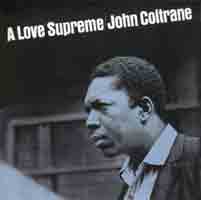
 Inselplatte
Inselplatte  #1 in Jahresliste
#1 in Jahresliste  Plattentipp
Plattentipp 

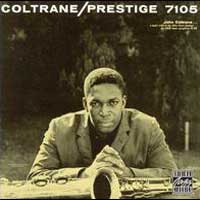
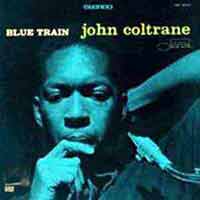
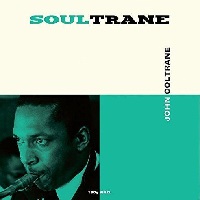
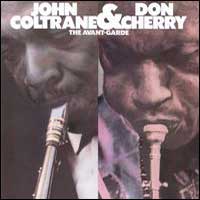
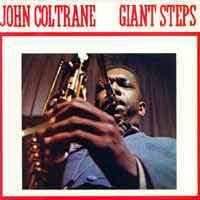
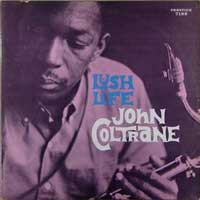
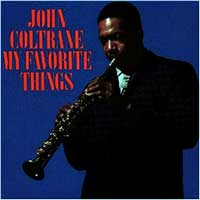
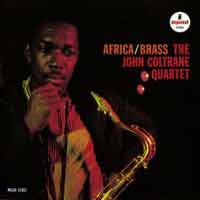
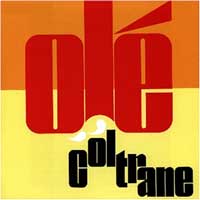
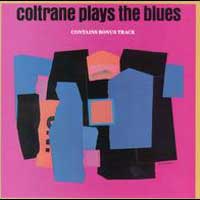
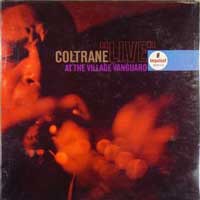
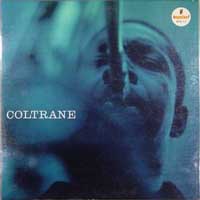
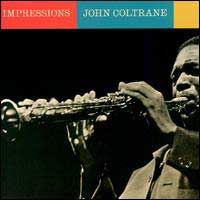
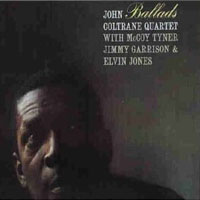
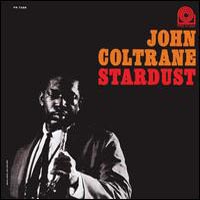
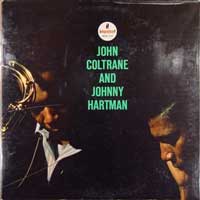
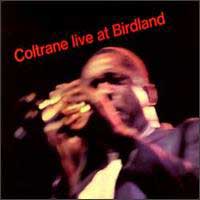
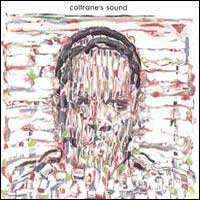
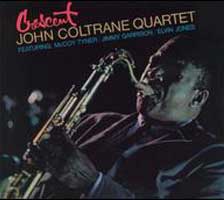
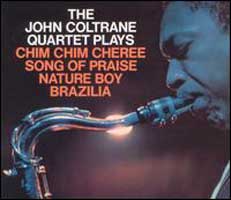
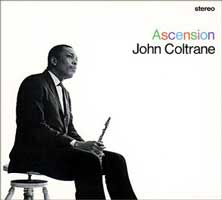
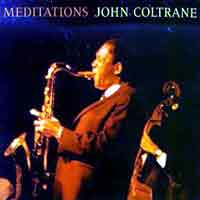
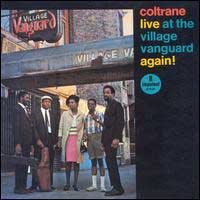

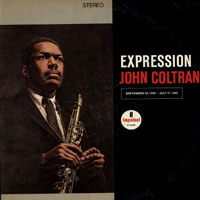

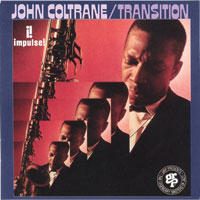
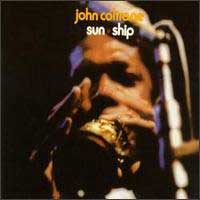
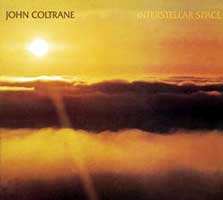
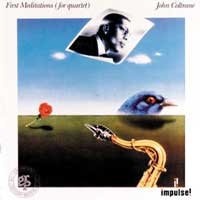


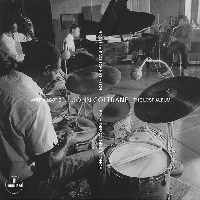
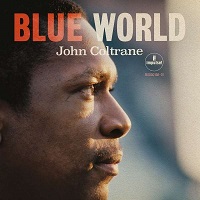
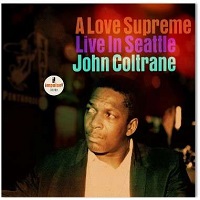
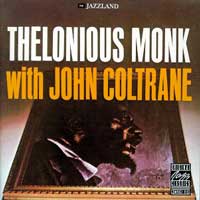

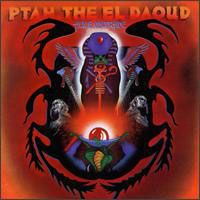
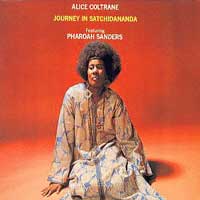
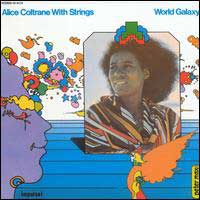
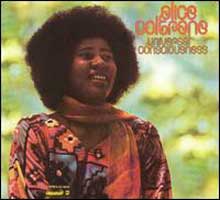
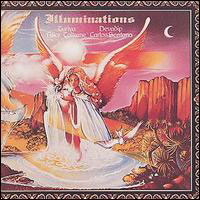
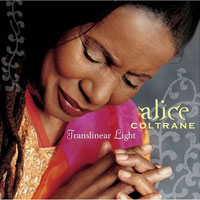
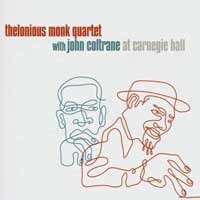





 #85 Virgin/Colin Larkin(2000)
#85 Virgin/Colin Larkin(2000)



 eins von 1001 Alben, die Ihr hören solltet, bevor das Leben vorbei ist! (2008)
eins von 1001 Alben, die Ihr hören solltet, bevor das Leben vorbei ist! (2008) 